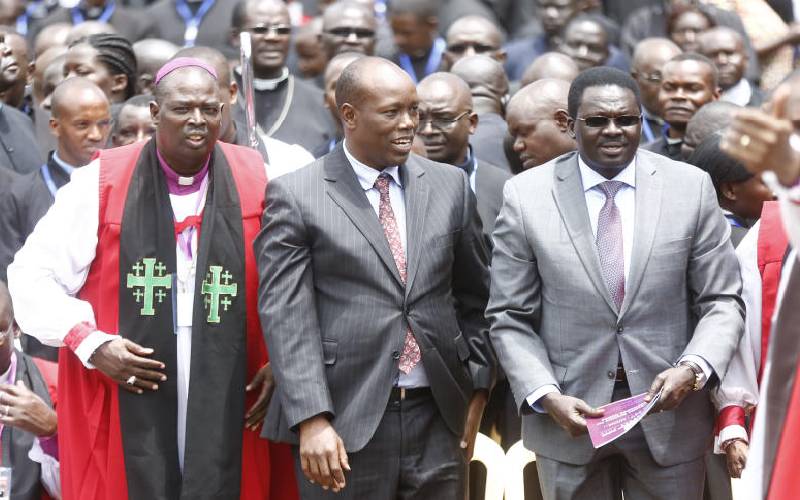×
The Standard e-Paper
Fearless, Trusted News

The Anglican Church of Kenya (ACK) has warned that the referendum debate is becoming divisive and could easily derail the Government’s development agenda.
Speaking yesterday during a pastors’ conference in Nakuru, ACK Archbishop Jackson ole Sapit asked the political class to put aside their political ambitions while pushing for the plebiscite.